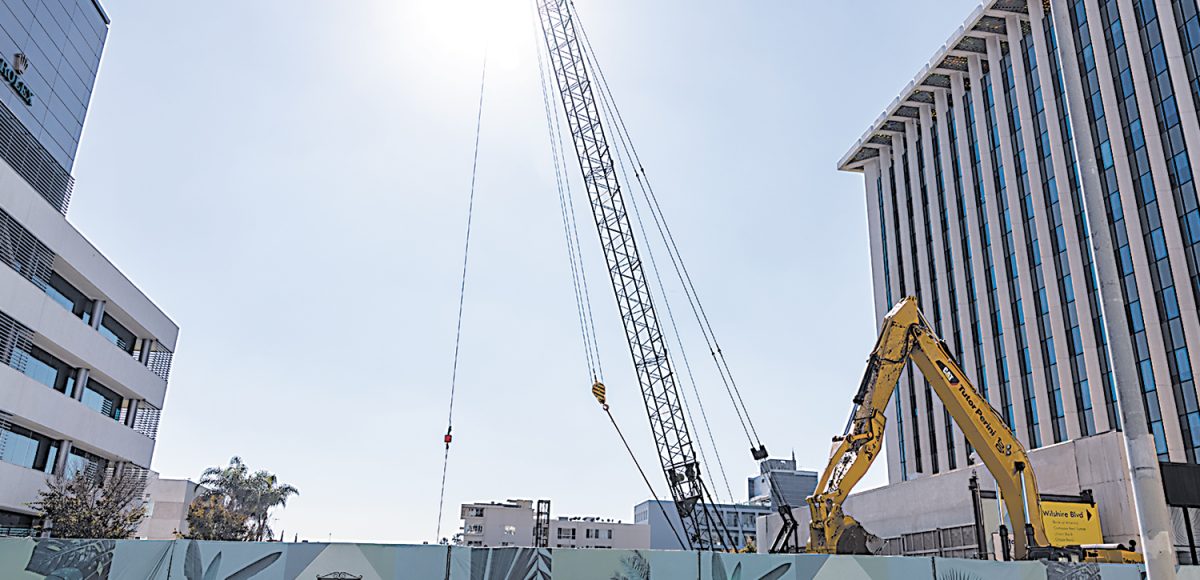At its Dec. 1 Regular Meeting, the Beverly Hills City Council voted to amend the settlement agreement with the Los Angeles County Metropolitan Transportation Authority (Metro) over the Purple Line Extension Project, adjusting the work hours to account for the COVID-19 Emergency Order. The settlement, which the Council approved at its Nov. 10 Regular Meeting, outlines the terms of how the City and Metro will share the cost and work for a second subway portal at Wilshire Boulevard and Rodeo Drive. The vote on the amended work hours split the same as the Nov. 10 vote on the settlement, with Councilmember John Mirisch casting the lone dissenting vote.
Councilmember Julian Gold said that the vote highlighted the City’s flexibility in dealing with Metro. “All I’d really like to do is to highlight the fact that yet again, this is a time where we’re saying yes [to Metro],” Gold said. “And if, perhaps, in the future, there’s a time where, for whatever reason, we say no, that we have a little bit of credit in the bank.”
Metro’s Purple Line Extension promises to carry riders from downtown Los Angeles to Westwood in only 25 minutes when completed. Along the way, it will deposit and pick up passengers at a station located in Beverly Hills at Wilshire Boulevard and Rodeo Drive. As a part of the settlement, the City and Metro will share the cost of the project, estimated at $78.5 million split between the two parties. Additionally, Metro agrees to construct restrooms for the station. Metro will also reimburse the City up to $250,000 for tunnel rescue equipment for the City’s Fire Department.
The settlement also changed the work hours during which construction can take place in order to minimize the impact on local businesses. The hours took into consideration the fact that many businesses, like restaurants, had moved outside since the COVID-19 pandemic. The settlement agreement dictated that work would take place starting at midnight, with construction beginning at 1 a.m.
As the County logged an increasingly steep curve in COVID-19 cases, the Los Angeles County Department of Public Health imposed more stringent restrictions, including a curfew on all non-essential businesses.
“Effective November 20, there were COVID orders, as you’re very well aware of, that identified a curfew for restaurants and other non-essential retail establishments to be between 10 p.m. and 5 a.m., with restaurants allowing for pickup and delivery after 10 p.m.,” said Engineering Manager Robert Welch, who presented the adjusted hours to the Council on Dec. 1.
While the new restrictions represented yet another hit to beleaguered businesses, Metro saw them as lemons. The lemonade? More time to work. Under the updated work hours, work can begin at 10 p.m. and end at 10 a.m.
“These adjusted hours would not have impacts on businesses while the new orders remain in effect and would expedite subway construction, minimizing impacts of the project during the future economic recovery period,” the staff report for the Dec. 1 meeting reads. The report adds that the hours would revert back to the originally stipulated hours if and when the orders are lifted.
“The benefits of allowing for this work to shift is it limits work on Wilshire primarily to late night hours and early morning hours, there would be no work in the triangle within Wilshire between 10 a.m. and 10 p.m., the work would continue in the staging yard and this allows for excavation to continue unless it impacts in the community recovery,” Welch said.







